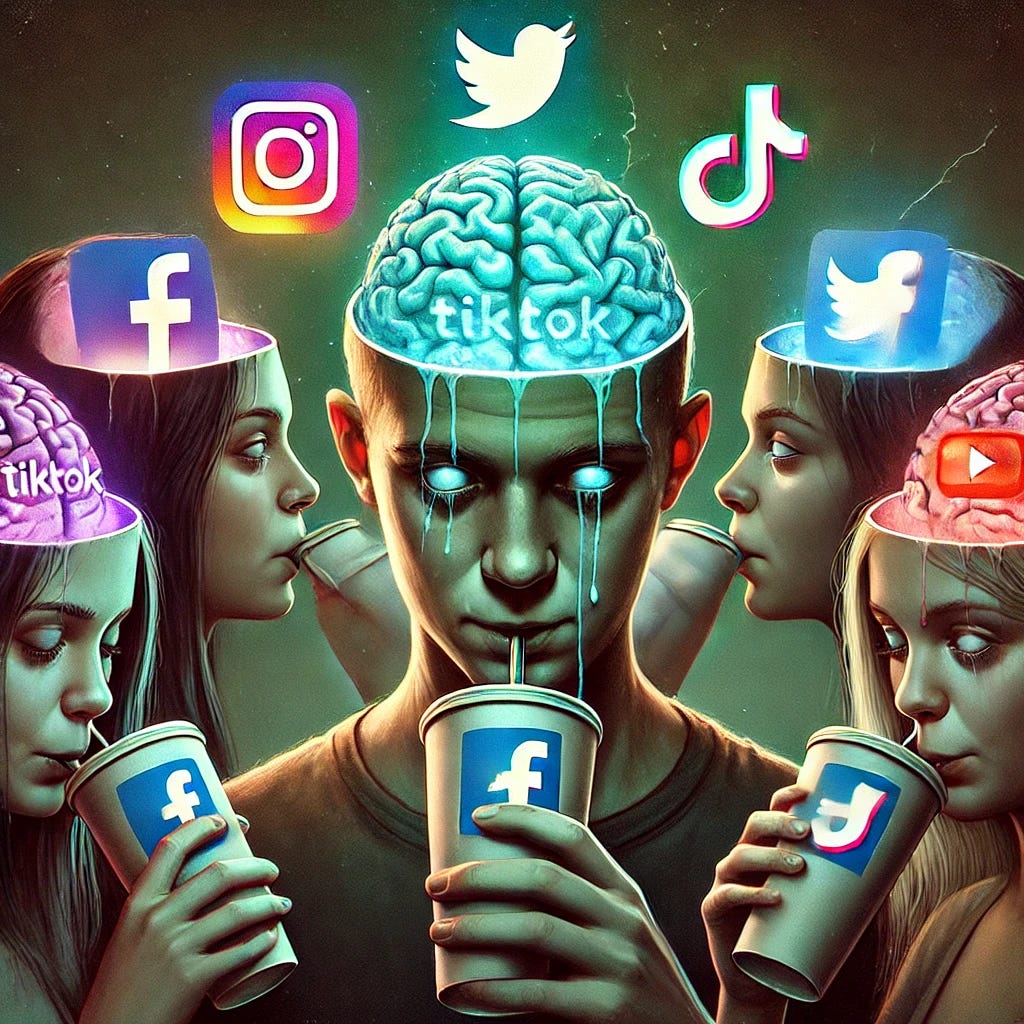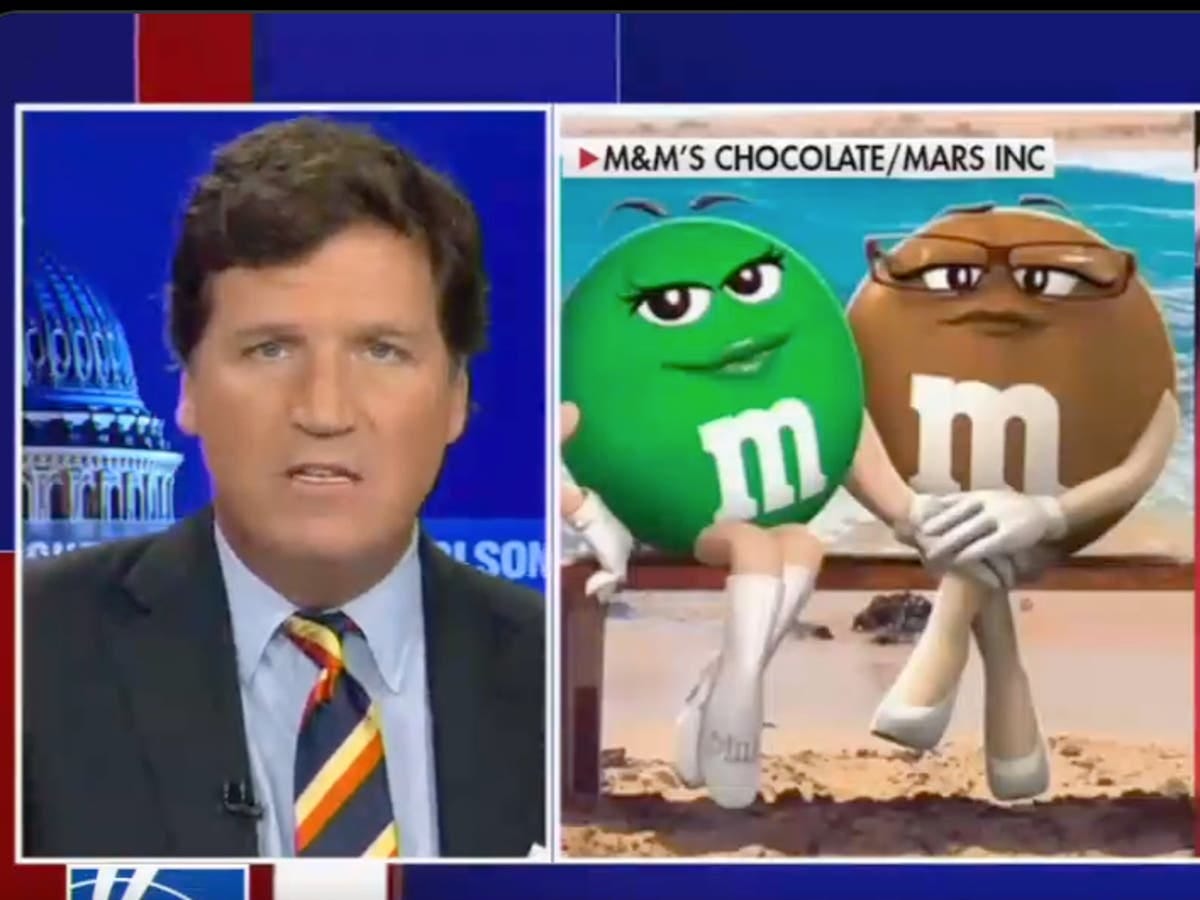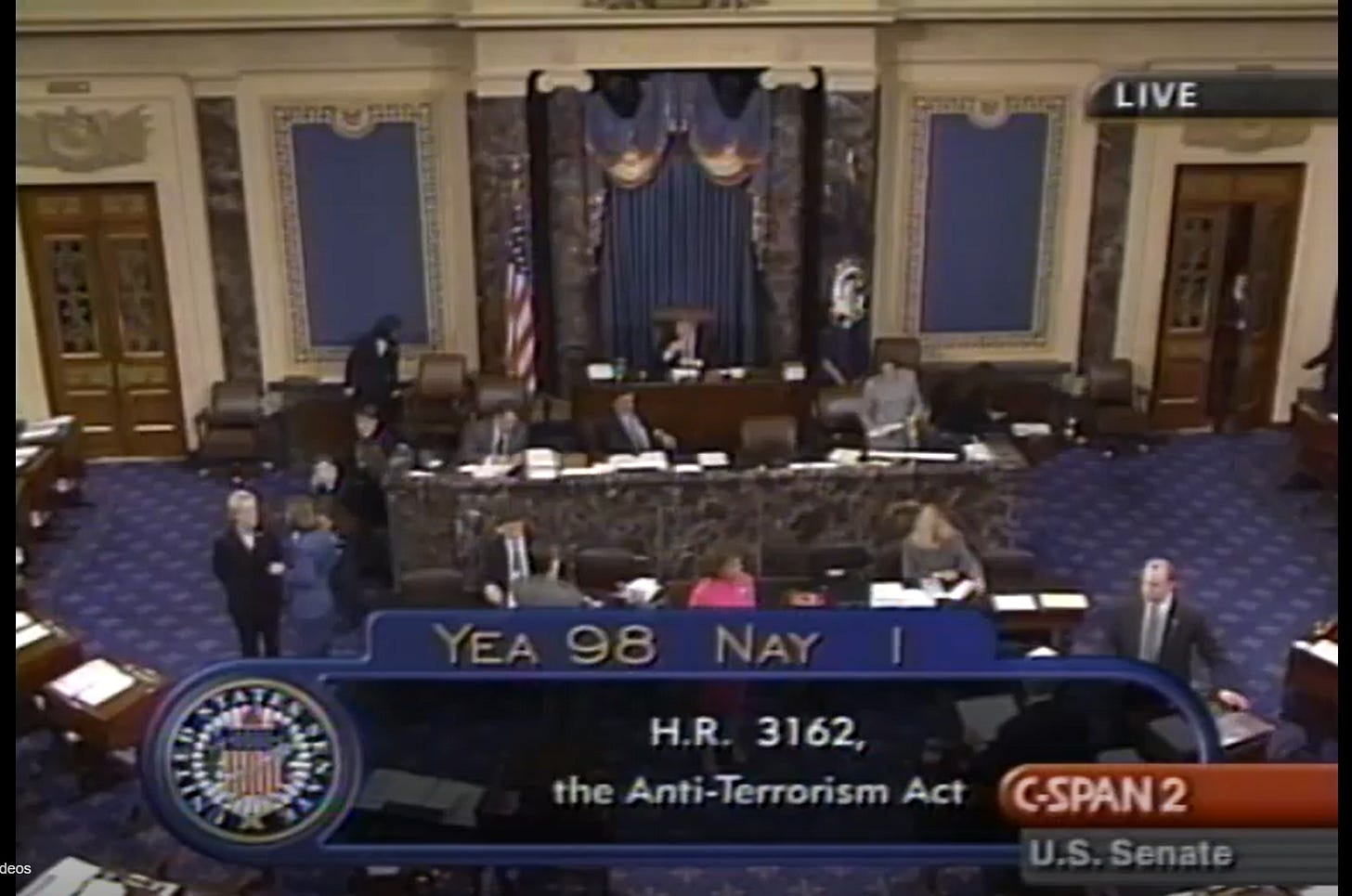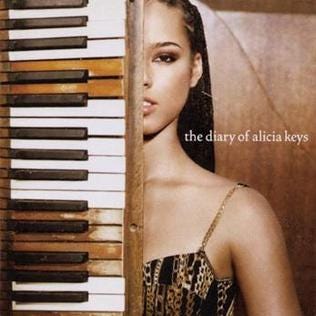TikTok is Dead. Long Live TikTok.
While not a huge proponent of a ban, an America without Tik Tok isn't the worst idea.
It’s been a long time coming, with the first stirrings of a nationwide ban coming from the incoming administration back in 2020 when Trump flirted with banning the app because he was mad at China over Covid. Since then the “Ban Tik Tok” movement has gained enough steam that Congress passed a bill and President Biden signed it in April of 2024. Despite a vigorous (and undoubtedly expensive) fight, the app went dark on Sunday when the Supreme Court did not step in to save it.
This newsletter examines the ban through the means and the ends. The means portray TikTok as an inevitable victim of tech-based protectionism in a nation emboldened by the xenophobia of an incoming presidential administration. The ends are that the American people now have one less app that harvests their private information while keeping them addicted to an algorithmic morass of short online videos.
First, Some Editor’s Notes
Dear reader,
The opinions you encounter here - as always, but a reminder doesn’t hurt - are mine and mine alone. They’re not my employer’s nor their parent company’s. In fact, I suspect I’m in a minority within my industry with this take.
Bans should be wielded as last-ditch efforts in a free society like America aspires to be. That said, the word “ban” to refer to TikTok is a bit off the mark, as there are ways it can remain active within American IPs, but the company sees these as a bridge too far to comply with.
That said, “ban” is probably the most convenient term for the platform and this newsletter’s stance is that if TikTok ends up being disallowed in America, it’s a net positive for the country’s population - especially its younger generations who are most vulnerable to the app’s machinations.
This post was mostly written during the week prior to the incoming administration’s inauguration, and while the app now looks like it may remain on American phones, this newsletter believes the post below is still relevant. Plus there’s no way I’m turning around a new one in 48 hours.
With that, let’s get into it.
-Matt
Social Media Is Not Your Friend
We have discussed how the way we consume information is broken, and how the rise of social media is one of the major contributors to this. These platforms are not only harmful to people in the same way that drugs are, but they are designed to be as potent as possible from a dopamine-response perspective and are sweeping up entire generations in their hunger for the crucial Wall Street metric of monthly active users.
In order to increase your MAUs, you need to both acquire users and maintain them. This is where the algorithm comes in: by feeding you content that they think will keep you locked to your screen mindlessly thumbing through viral dance videos, these platforms can maintain you as a user. This allows them more opportunities for advertisers, more monetization, and higher valuations in financial markets as each user acquired for the app is that much more valuable because of the platform’s stickiness.
And Tik Tok was one of the best to do it. Their approach to social media was to completely ignore the social aspect of it and simply create a product that kept users hooked on content - regardless of where it sat in someone’s social graph. It’s not a social media app as much as it is an audience segmentation tool based on viewed content KPIs.
Grouping TikTok into the category of other apps like Meta’s Facebook and Instagram or Twitter/X/Bluesky is somewhat of a misnomer. Yes, those other apps (especially Instagram) have borrowed aspects of what TikTok does, but there’s a higher weight given to who and what someone has chosen to connect to as opposed to almost singularly what that user has simply consumed.
And that’s not to say that those other “homegrown” apps are driving American excellence - they too rely on the MAU formula and their goal is to keep people on their platforms to sell more ads (not to mention the descent into madness their owners have undertaken.) And they do this via the same dopamine pathways TikTok so effectively utilized.
But when you try to tackle a problem as large as social media, you need to phase it out, and if you’re looking for the biggest offender the app with the most addictive algorithm that simply happens to be headquartered within a foreign adversary that has a history of tech-based espionage would be a good place to start.
Harm and Misinformation
It would be one thing if the content being served up was based in reality, but the fact is that TikTok has higher rates of misinformation than other platforms and it is harder to sort the truth from the fugazi on TikTok than other digital outlets.
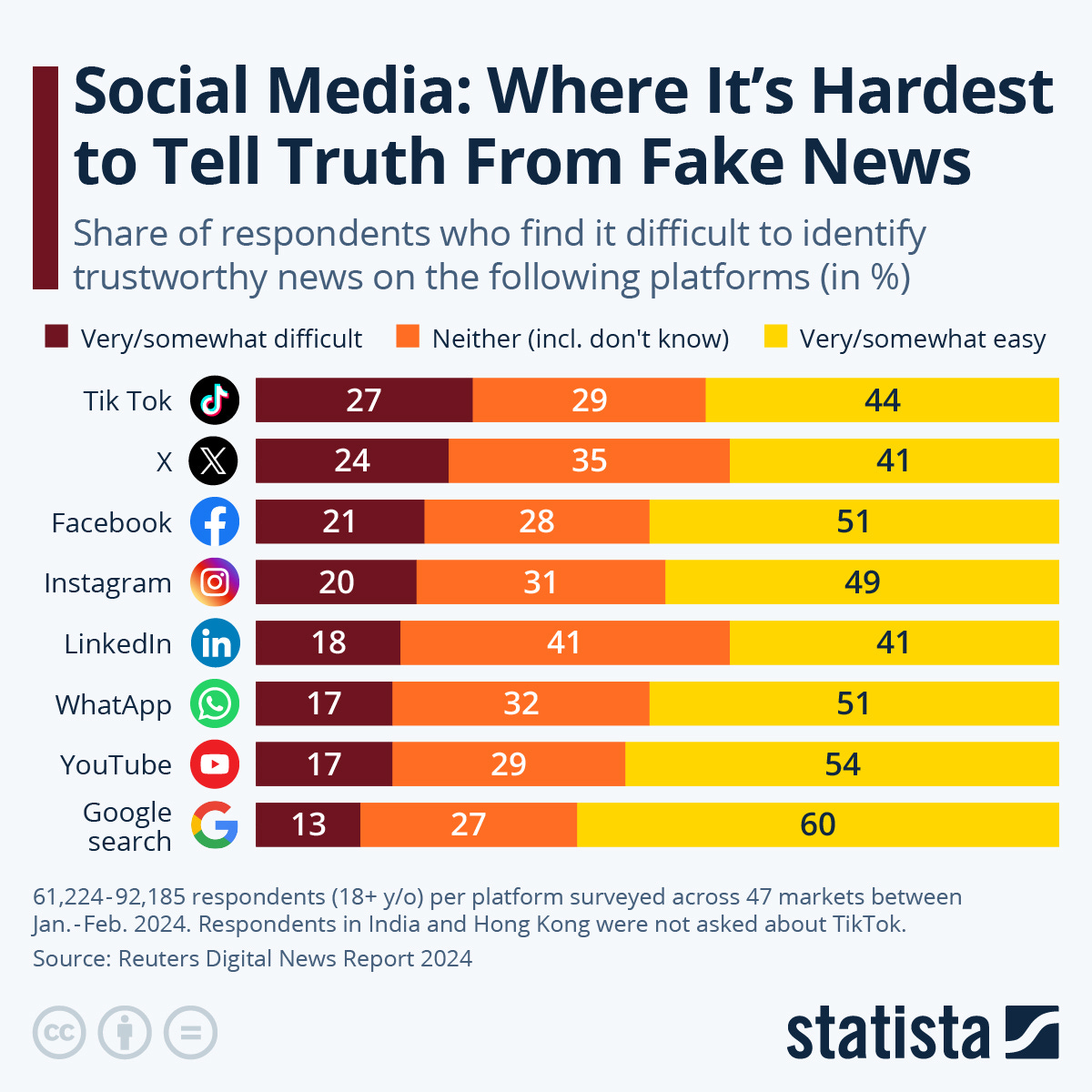
And even when that content isn’t necessarily misinformation - weaponized or otherwise - the platform itself is incredibly harmful to kids who use it. Over a dozen state attorneys general have sued the platform because of this harm - Jon Haidt and Zach Rausch have an excellent rundown of these harms in disturbing detail. There is no doubt that TikTok as a platform is a net detractor to American society.
The Breaking Point
Up until now in this post, you could very easily point to every issue I’ve outlined above and levy the same (or at least similar) charges against homegrown apps like Meta’s Facebook and Instagram, or X or Snapchat. You’d be hard pressed to make the case that TikTok doesn’t perpetuate these harms more efficiently or to a more vulnerable set of the population given the demographics of its users.
But the straw that breaks this newsletter’s camel’s back is the way the algorithm is geographically distributed.
As much as we’ve heard the term “culture war” in America about keeping Christ in Christmas or - and I’m still not sure how we got there - a sexy green M&M character, these skirmishes pale in comparison to an actual front like the one technology has created between China and its “frenemies.” In a world where nuclear annihilation is a simple button push away, the realm of soft power is more important than ever. And with something like TikTok, China has an incredibly powerful weapon being shipped straight to phones across the world to the youth of nations with which it has beef.
This is where the value exchange that we’ve dissected on this newsletter before becomes tipped much too far towards the platform versus the user. Even if we - incorrectly - put TikTok’s harm on the same level as other American platforms, the mere fact that its country of ownership knows the harms and actively protects its own citizens against it while allowing brain rot to overtake a generation of American kids watching Rosa Parks get a “Big Boom” from whatever the hell this is is simply too rich of a price for this newsletter’s blood.
This Does Not Xenophobe Well
But Matt you ignorant slut - you might say - aren’t you just falling for far-right propaganda when it comes to banning a Chinese app when American apps are doing similarly shady things with Americans’s data?
I live in one of the most monitored urban areas in the United States. I have a professional career that gave me access to confidential documents from Guantamo Bay prisoners (you can imagine the background checks that go into something like that.) Google smart speakers are sprinkled throughout my house. I pay my mortgage and feed my kids as a leader in an industry that collects consumer information on a mass scale in order to monetize it for brands.
I am under zero illusion of a concept of absolute digital privacy from the private and public sectors of America. I love the 4th Amendment, but I was also 15 when the towers fell on 9/11 and personally witnessed the speedy and steady erosion of American civil liberties in a “War on Terror” world. These social media platforms are symptoms of a larger disease in this country, not the cause of it.
There is no doubt that the ban of TikTok will help American oligarchs like Drake’s molly dealer Mark Zuckerburg and sentient government subsidy Elon Musk. There is also no doubt that TikTok as an app is a serious privacy violator and the fact that the CCP very likely has a backdoor into it is a bridge too far for me. Both things can be true.
The difference - and this is one guy’s opinion - is that consumers opting into the American private sector surveillance state are providing better-informed consent than opting into a Chinese public sector one. This newsletter is no fan of late-stage capitalism, but there is no doubt that it ranks higher than late-stage communism.
The migration of American consumers to apps like Rednote - an app whose title is an homage to one of the most murderous dictators in world history - is an excellent example of the naivete of a populous used to their data simply being used to make money. The refrain of “We don’t have beef with the Chinese people” further proves this point - the people of China aren’t the ones controlling the executives of these apps. The government is and to think otherwise is foolhardy.
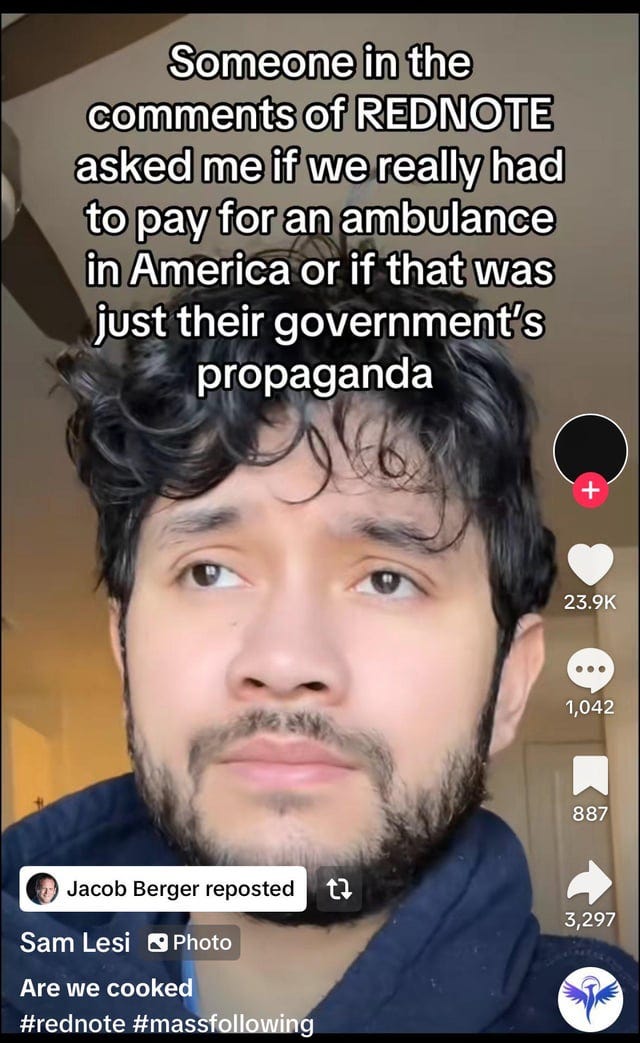
Ask yourself why you can’t talk about Hong Kong pro-democracy figure Jimmy Lai without getting your account suspended. The rhetoric around “Welcome to Rednote, I’m your Chinese spy to help you get started” is humorous and those saying they don’t have beef with the people of China very likely mean it - and I imagine the sentiment is likely shared for the people of America.
But these apps - while consumed by “the people” of these countries - are in reality owned by the oligarchy and states and used accordingly. The value prop of TikTok - for reasons described above - is not a fair exchange for the American consumer in this newsletter’s view, which is why it does not oppose a TikTok ban in the United States.
Grab Bag Sections
WTF Social Media: If you’re of a certain age, you remember what social media used to be like. Who you put in your top 8 on MySpace was a big decision, as was the song you had streaming when people got to your profile. Tom had us all learning HTML codes to pimp out our pages and life was good.
When Facebook first hit the scene I was embarking on my college journey, and it proved immensely useful for orienting myself freshman year. Despite its less-than-honorable beginnings, the infancy of Facebook was - looking back on it from the digital hellscape we’ve created for ourselves since - insanely dewey-eyed and innocent. We would go out, someone would bring a Coolpix, and we’d upload 70 photos that got blurrier as the evening went on. And the next morning the comment sections didn’t look like an industrial puddle from Alex Mack.
I’m sure contemporary anthropologists are mining our digital archeological sites in an effort to pinpoint where it all went wrong. This newsletter has its theories, but this WTF is more about mourning what used to be rather than running a post-mortem on today’s current landscape. Pour one out for when social media didn’t feel like a black hole of either toxic comments or dissociative 30 second videos.
Album of the Week: My wife and I had the pleasure of being child-less for 24 hours and spending a day and night on the town (we were home and in bed by 9.) During this small taste of toddler-free freedom, we caught the matinee of Hell’s Kitchen, which is a semi-autobiographical play about Alicia Keys’s late teenage years in the Manhattan neighborhood of the same name. The show was incredible - each voice better than the next and they captured the late 90s hip hop aesthetic perfectly.
This prompted me to discover that we’ve never had Alicia Keys as an AOTW, so we’re rectifying that with her sophomore studio album Diary of Alicia Keys. You can’t go wrong with this album, and it’s incredible that Clive Davis continued his discovery of young artists by signing Alicia to his J Records after Columbia absolutely fumbled the bag during her debut Songs in A Minor. “Diary” and “If I Ain’t Got You” are standouts, but “You Don’t Know My Name” lives on another musical plane. And the music video with Mos Def in it is legendary.
See Hell’s Kitchen if you can (buy tickets here and use code “TDNBW” to pay full price), but in the meantime go through Keys’s catalog and spend some time on her sophomore album.
Quote of the Week: “If you're doing nothing wrong, you have nothing to hide from the giant surveillance apparatus the government's been hiding.” - Stephen Colbert
See you next week!





